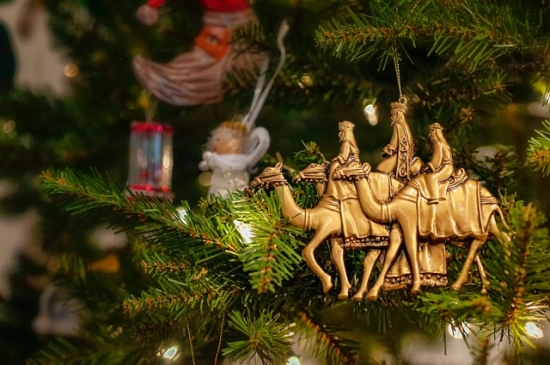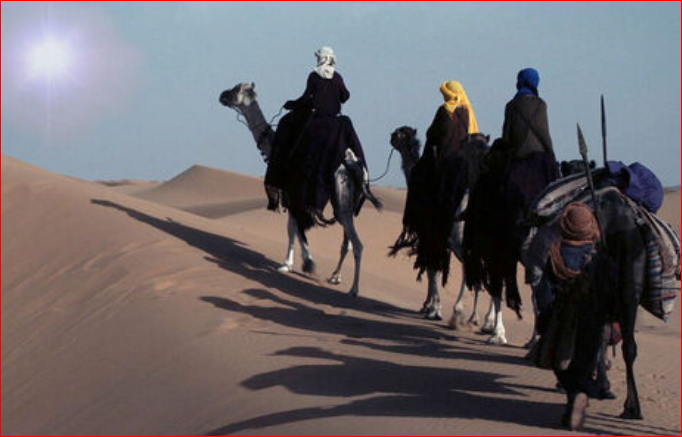1
Ihr seid Kinder des HERRN, eures Gottes; ihr sollt euch nicht Male stechen noch kahl scheren über den Augen über einem Toten.
2
Denn du bist ein heilig Volk dem HERRN, deinem Gott, und der HERR hat dich erwählet, daß du sein Eigentum seiest aus allen Völkern, die auf Erden sind.
3
Du sollst keinen Greuel essen.
4
Dies ist aber das Tier, das ihr essen sollt: Ochsen, Schafe, Ziegen,
5
Hirsch, Rehe, Büffel, Steinbock, Tendeln, Urochs und Elen
6
und alles Tier, das seine Klauen spaltet und wiederkäuet, sollt ihr essen.
7
Das sollt ihr aber nicht essen, das wiederkäuet und die Klauen nicht spaltet. Das Kamel, der Hase und Kaninchen, die da wiederkäuen und doch die Klauen nicht spalten, sollen euch unrein sein.
8
Das Schwein, ob es wohl die Klauen spaltet, so wiederkäuet es doch nicht, soll euch unrein sein. Ihres Fleisches sollt ihr nicht essen und ihr Aas sollt ihr nicht anrühren.
9
Das ist, das ihr essen sollt von allem, das in Wassern ist: alles, was Floßfedern und Schuppen hat, sollt ihr essen.
10
Was aber keine Floßfedern noch Schuppen hat, sollt ihr nicht essen; denn es ist euch unrein.
12
Das sind sie aber, die ihr nicht essen sollt: der Adler, der Habicht, der Fischaar;
13
der Taucher, der Weihe, der Geier mit seiner Art
14
und alle Raben mit ihrer Art,
15
der Strauß, die Nachteule, der Kuckuck, der Sperber mit seiner Art,
16
das Käuzlein, der Uhu, die Fledermaus,
17
die Rohrdommel, der Storch, der Schwan,
18
der Reiher, der Häher mit seiner Art, der Wiedehopf, die Schwalbe;
19
und alles Gevögel, das kreucht, soll euch unrein sein, und sollt es nicht essen.
20
Das reine Gevögel sollt ihr essen.
21
Ihr sollt kein Aas essen; dem Fremdling in deinem Tor magst du es geben, daß er's esse, oder verkaufe es einem Fremden; denn du bist ein heilig Volk dem HERRN, deinem Gott. Du sollst das Böcklein nicht kochen, weil es noch seine Mutter säuget.
22
Du sollst alle Jahr den Zehnten absondern alles Einkommens deiner Saat, das aus deinem Acker kommt;
23
und sollst es essen vor dem HERRN, deinem Gott, an dem Ort, den er erwählet, daß sein Name daselbst wohne, nämlich vom Zehnten deines Getreides, deines Mosts, deines Öls und der Erstgeburt deiner Rinder und deiner Schafe, auf daß du lernest fürchten den HERRN, deinen Gott, dein Leben lang.
24
Wenn aber des Weges dir zu viel ist, daß du solches nicht hintragen kannst, darum daß der Ort dir zu ferne ist, den der HERR, dein Gott, erwählet hat, daß er seinen Namen daselbst wohnen lasse (denn der HERR, dein, Gott, hat dich gesegnet),
25
so gib's um Geld und fasse das Geld in deine Hand und gehe an den Ort, den der HERR, dein Gott, erwählet hat,
26
und gib das Geld um alles, was deine Seele gelüstet, es sei um Rinder, Schafe, Wein, starken Trank oder um alles, das deine Seele wünschet. Und iß daselbst vor dem HERRN, deinem Gott, und sei fröhlich, du und dein Haus
27
und der Levit, der in deinem Tor ist; du sollst ihn nicht verlassen, denn er hat kein Teil noch Erbe mit dir.
28
Über drei Jahre sollst du aussondern alle Zehnten deines Einkommens desselben Jahrs und sollst es lassen in deinem Tor.
29
So soll kommen der Levit, der kein Teil noch Erbe mit dir hat, und der Fremdling und der Waise und die Witwe, die in deinem Tor sind, und essen und sich sättigen, auf daß dich der HERR, dein Gott, segne in allen Werken deiner Hand, die du tust.








